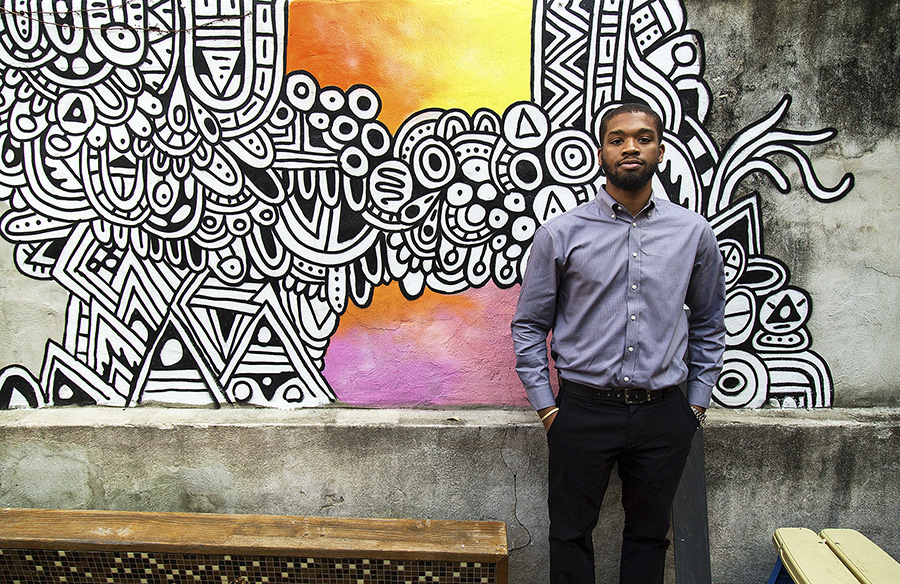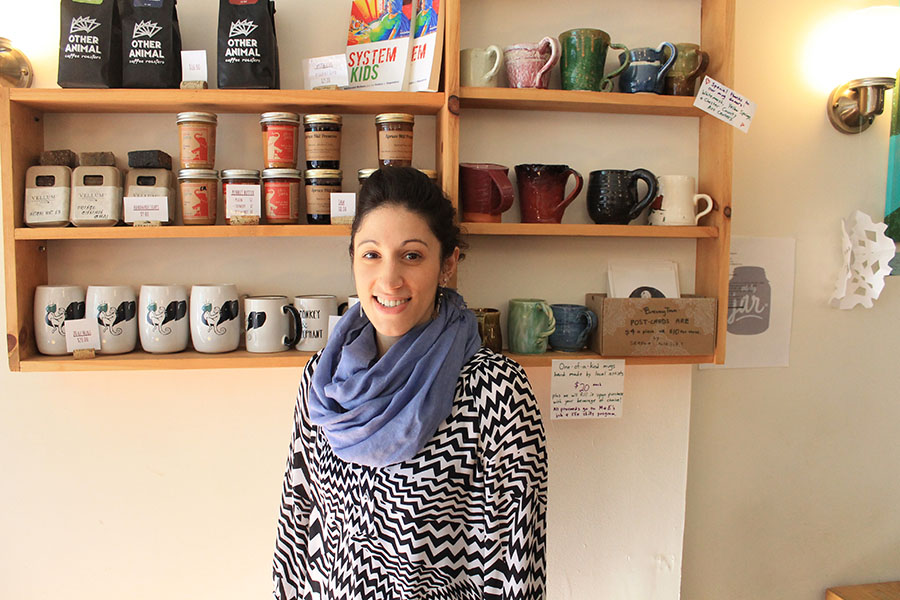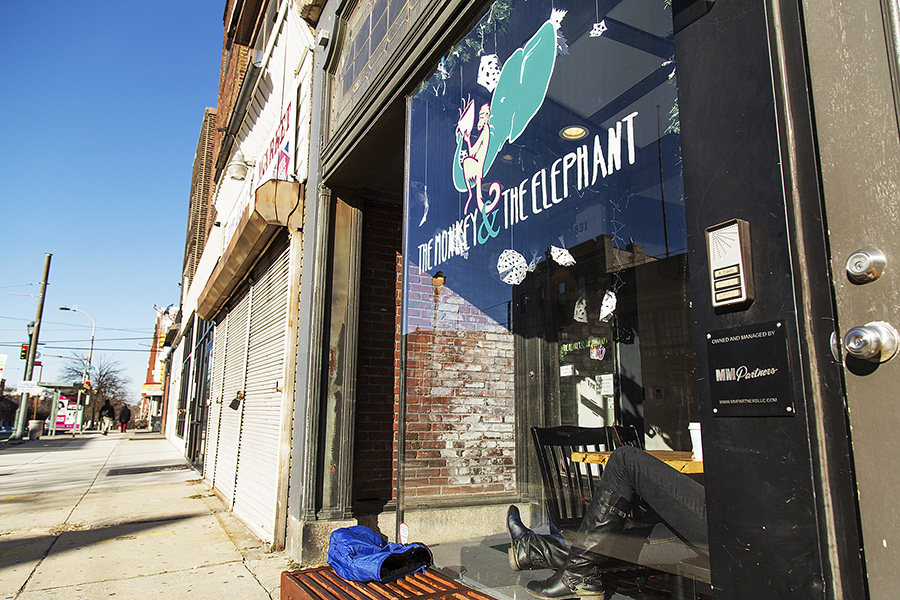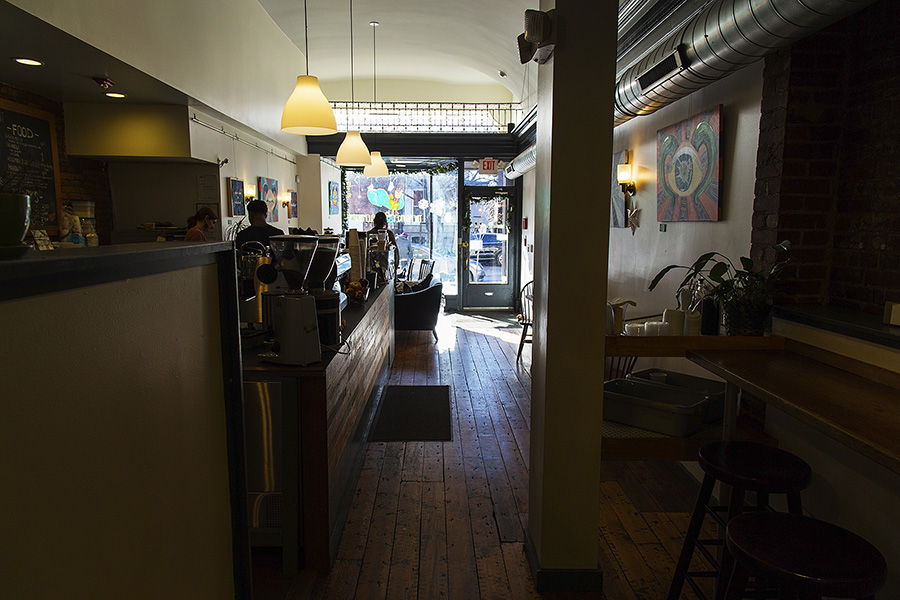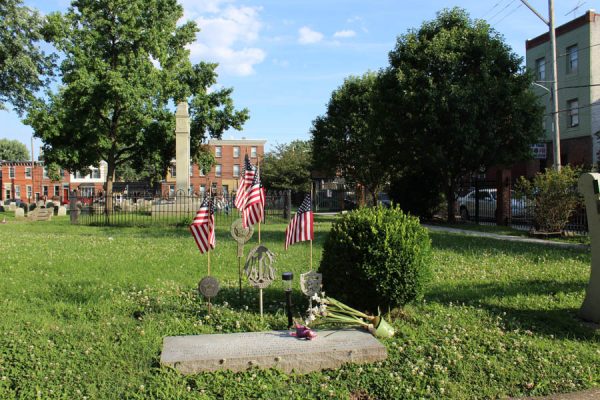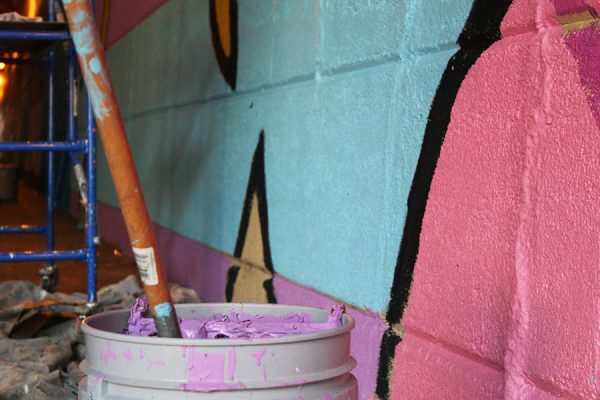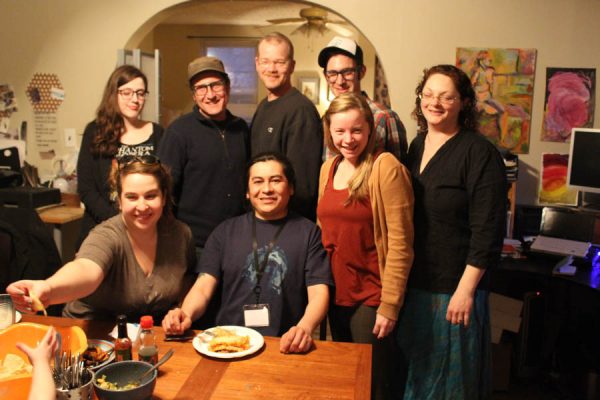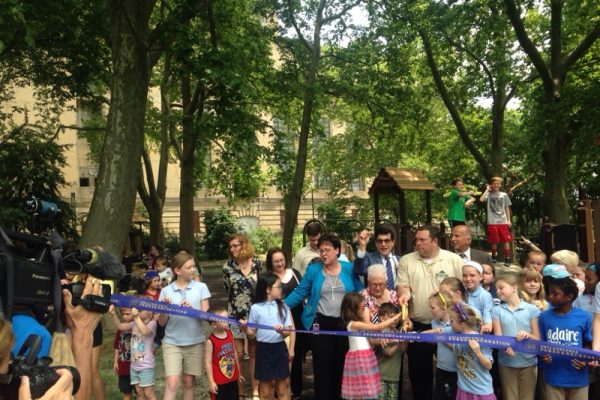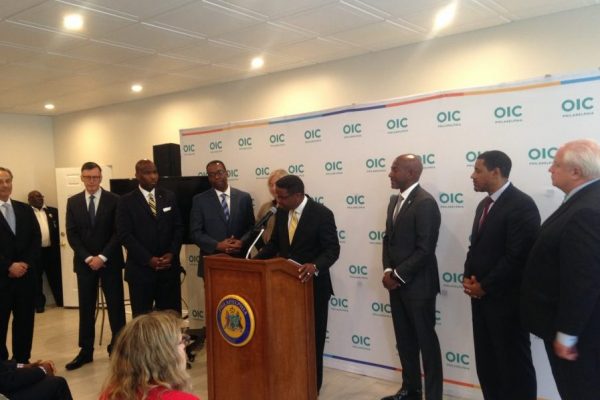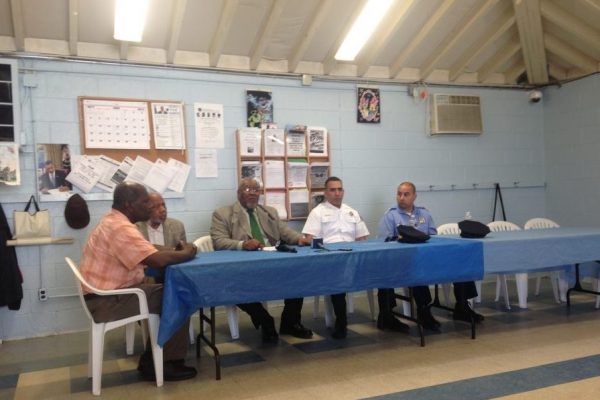His focused eyes and infectious smile do not suggest it, but Naje Taylor hasn’t always been the upbeat, talkative man he is today. He grew up as a part of the foster care system and, at age 21, he “aged-out.” Taylor doesn’t speak poorly of his time in the foster system, but he says that’s where his trouble with self-expression began.
“You keep things to yourself,” he explains, “You’re away from your family, you don’t want to show any weakness, so you bottle up your emotions.”
He didn’t know it at the time, but when he began working with Lisa Miccolis at The Monkey & The Elephant cafe (2831 W. Girard Ave), he started a journey that would help him overcome this problem.
Miccolis and Taylor had both felt, at moments, directionless in life prior to the founding of the cafe, but it would only take a trip to South Africa, a pop-up store and a whole lot of coffee to change that.
For many who are “aging out” of the system, what to do next isn’t always clear. The foster system guarantees a place to live, access to health coverage and guidance from social workers and child advocates. When you age out, none of that is guaranteed.
A 2015 report from the U.S. Department of Health and Human Services states that, as of 2014, around 415,129 youths were within the foster care system in the United States. On top of that, more than 24,000 of these individuals were between the ages of 18 and 20. For many foster kids, their 18 birthday marks the end of their time in the system. In Pennsylvania, it’s possible to continue in the system until the age of 21 if you meet certain requirements– like pursuing a GED or college degree or working full time.
It was helping to guide these people through life after foster care that inspired Miccolis to found The Monkey & The Elephant in the first place.
After graduating from college, Miccolis found herself unable to decide what to do next. She did humanitarian work through YouthBuild, a non-profit program that provides education and counseling to unemployed youths between the ages of 16 and 24. She even considered a career in documentary photography, but nothing seemed to fit.
“With photography you have to be removed from what you’re shooting. I wanted something where I could be more involved.”
During a trip to South Africa, Miccolis made a connection with a young man named Ephraim, who had been in the South African equivalent of foster care. Her time with Ephraim led Miccolis to explore the non-profit sector. Combining what she learned there with the knowledge that she had obtained from her previous experience working in coffee shops, Miccolis founded The Monkey & The Elephant. The mission of the cafe is simple: to employ foster youth who have aged out of the system and provide the necessary skillsets required to survive in the workforce.
Miccolis, alongside friends and acquaintances of various backgrounds, designed the foster youth program at the cafe with several points in mind. Some of the tasks that employees must complete include attending networking events, learning about food access by visiting grocery stores and farmers markets, creating personal financing plans and conducting an informational interview, among other things. Miccolis says the program was designed to mix both practical tasks, such as attending career fairs, with learning experiences that can help expand an individual’s worldview, such as taking a walk through an unfamiliar neighborhood and engaging with people who live there.
During the earliest days of the cafe, when it was simply a pop-up shop, Miccolis met Taylor. After he was hired, Taylor became a staple at The Monkey & The Elephant and went along with Miccolis to open up a stable location in the Brewerytown area of Philadelphia. While working in the cafe and going through the program, Taylor was able to confront parts of himself that he felt were holding him back.
“I had jobs before, but I wasn’t good at communicating,” Taylor says, calling back to his inability to express himself while in foster care.
Since a large part of the program at The Monkey & The Elephant has to do with communication, Taylor was able to face this problem head-on. Outside of networking events and interviews, employees of the cafe interact with dozens of people on a regular basis. Taylor learned how to communicate with others through the daily exchanges that he would have with customers. Miccolis also acknowledges the important role that the community plays in the program at the cafe.
“[Our customers] may not realize this, but they are acting as mentors every time they walk in just by talking to the staff.”
While working at the cafe, Taylor continued to pursue other job opportunities. He was eventually able to land a position as Youth Advocate for Foster Care with Catholic Community Services, which offers opportunities for foster youth to be adopted and provides counseling services for foster families. Here, Taylor has been able to test the skills he developed at Monkey & Elephant.
“It’s easier for me to read people now. I find it easier to express myself, some might say I express myself too much, “ Taylor said, laughing, “And I’ve learned that approaching someone is not always going to be a positive experience. Sometimes you need to approach someone who seems negative so you can test your strengths.”
Not all of the problems that Taylor and other members of the staff, face are unique to those who have aged out of the foster care system. Taylor is quite familiar with a huge problem that members of his generation struggle with: student debt.
After enrolling in college, Taylor had to drop out in order to help care for his family. Unfortunately, he missed the deadlines for reimbursement and went into debt for the tuition. This doesn’t seem to bother Taylor, who has every intention of paying off the debt and returning to college.
“When I’m at work I see my ceiling. My co-workers have their master’s degrees and I can’t even go on Snapchat without seeing my friends in a college environment. It inspires me, makes me want to go back to school.”
Taylor has plenty of ideas for what he would like to do after returning to college. His time in the non-profit sector opened up his mind to all the good that could be done. He imagines a non-profit that could help out public defenders and those who experience heavy workloads in the court system. Though his wheels are turning, he admits that many of his ideas might not be ones he can accomplish on his own. Ultimately, he sees himself working with children. He wants to provide the guidance and understanding that he felt was missing from his own upbringing.
“I wasn’t helped much growing up. My mom did the best that she could, but I know how it feels to not be handed anything. I’m learning to be self-sufficient and I want to give back and help others do this.”
Taylor speaks of his future in an upbeat tone, acknowledging how his experiences have shaped him. He does not look at his past as something to be ashamed of or that should hold him back from obtaining what he desires. Instead, he moves forward, pursuing new opportunities and openly communicating with others. At the present, he has successfully “graduated” from the program at The Monkey & The Elephant, is awaiting a move to his own apartment and continues to go on job interviews and expand his career choices for the future. This positive attitude can be felt in his words of advice to other youth who are entering the program at the cafe:
“Anybody coming to work at The Monkey & The Elephant should use the opportunity to get in touch with themselves. Once you know who you are, you’ll find it a lot easier to communicate with others.”
Taylor may have moved on, but Miccolis continues to oversee operations at The Monkey & The Elephant. On any given day she can be seen hustling around the cafe, aiding her staff in brewing and baking, and sitting in meetings with her team of mentors. When asked about her feelings regarding the success of the program, Miccolis laughs and responds in the tone of an exasperated parent:
“[The staff is] always telling me that they are getting a lot out of the experience, but they might also just be telling me that because they know it’s what I want to hear.”
